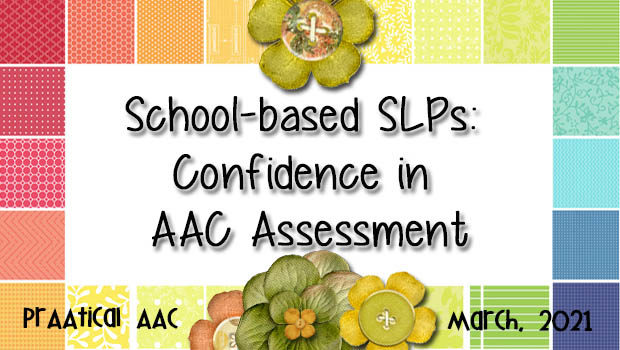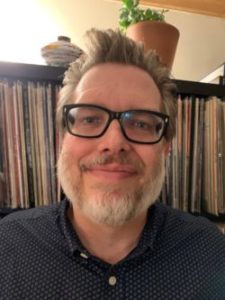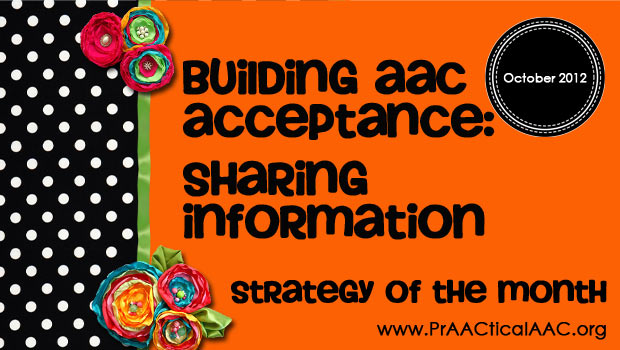School-based SLPs: Confidence in AAC Assessment

 Many practicing SLPs had limited opportunities to learn about the practice of AAC during their graduate studies and even those who did probably had insufficient training and mentorship in doing AAC assessments.
Many practicing SLPs had limited opportunities to learn about the practice of AAC during their graduate studies and even those who did probably had insufficient training and mentorship in doing AAC assessments.
In this post, guest author Dr. Eric Sanders, Assistant Professor at Moravian College, discusses his research on how school-based SLPs feel about evaluating students who need AAC devices.
School-based SLPs: Confidence in AAC Assessment
As a former school-based SLP AAC specialist and current researcher, one of the things that I am interested in is trying to determine ways to better understand how services are provided to students who require AAC in schools in order to figure out ways to ultimately improve those services. One of the areas that has received little research interest in school-based AAC services is assessment and feature matching.
There are a few likely reasons for this. AAC assessment can be very complicated, as there are many components to using a framework like SETT or the Participation Model. Within these frameworks, there are a variety of tools that SLPs can use, and some of these may require modifications and specialized trainings while others may not. Additionally, students who use AAC in schools are heterogeneous in terms of their needs, so completely different assessment tools may be needed from student to student. This is also true in terms of feature matching where there many potential AAC options available for students. With all of this in mind, we (Eric Sanders, Thomas Page, Deborah Lesher) decided it was important to look at the confidence levels of school-based SLPs in conducting assessments and feature matching.
To do this, we surveyed 272 school-based SLPs who had varying levels of expertise and experience to find out information about their confidence levels and factors that might impact their confidence. All of the SLPs had to have had a client on their caseload who had a complex communication need in the previous two years. Ninety-four of the SLPs self-identified as AAC specialists while the rest did not.
We asked how confident the SLPs were in terms of the following assessment areas: unaided communication, participation, increasing natural speech, receptive language, communication exchanges, incorporating cultural and linguistic diversity into assessment, communication skills of students with significant physical impairments, and assisting in finding funding resources. Additionally, we asked about confidence in the following areas of feature matching: determining page format, language organization strategies, and matching features of AAC devices like voices and word prediction to their students.
As a whole, the surveyed SLPs were the most confident in assessing unaided communication and student participation and the least confident in assessing students with significant physical impairments and incorporating elements of culturally and linguistic diversity into their assessments. For the other areas of assessment, the SLPs were moderately confident. In terms of feature matching, SLPs had the highest confidence level in determining page format and less confidence in the other two areas.
From here, we set out to determine if there were factors that helped predict confidence in both assessment and feature matching among the SLPs. For assessment, we determined that self-identification as a specialist, years of experience, percentage of caseload of students using AAC, and length of longest continuing education experience all played a significant role. For feature matching, all of those factors contributed, with the exception of years of experience.
We believe that these results can be used to help pinpoint strategies that might increase confidence in these areas for school-based SLPs. For example, the areas of assessment where SLPs felt the least confidence in assessment (e.g., incorporating elements related to cultural and linguistic diversity) might require more specialized graduate-level training or more continuing education opportunities. Additionally, SLPs often work as part of a team to assess students with significant physical impairments; knowing their assessment will be informed by another SLP’s insights might increase confidence in this area.
Areas where SLPs had more confidence tended to be related to tasks that might not require significant additional training, like assessing participation and unaided means of communication. In terms of feature matching, the surveyed SLPs generally had lower confidence levels than in areas of assessment as a whole. This may be because of the technological aspects of AAC and the fact that there is such a wide variety of AAC options for students. The field of AAC changes rapidly, and it is possible that the challenge of keeping up may be daunting for SLPs.
The predictors of confidence also point towards the importance of continuing education and the significance of having experience working with students using AAC in increased confidence among SLPs. The most significant characteristic across assessment and feature matching was whether or not the SLP considered themselves to be a specialist. This is important because currently, we do not really know about factors like the training, experiences, and professional characteristics of school-based SLPs who consider themselves to be AAC specialists. If these characteristics could be identified, it is possible that we might be able to provide more pinpointed training to all school-based SLPs.
Taken together, we are excited about presenting these findings, as they shine a light on this very important aspect of service delivery and may point to ideas that could lead to improvement in both assessment and feature matching for students who use AAC.
Sanders, E. J., Page, T. A., & Lesher, D. (2021). School-Based Speech-Language Pathologists: Confidence in Augmentative and Alternative Communication Assessment. Language, Speech, and Hearing Services in Schools, 1-17.
About the Guest Author
Eric Sanders is an Assistant Professor in the Speech-Language Pathology Program at Moravian College in Bethlehem, PA. He is a former school-based AAC specialist and researches service delivery in school for students who use AAC. Additionally, he studies language and literacy development and intervention in children with disabilities.
Filed under: Featured Posts, PrAACtical Thinking
Tagged With: pre-service AAC, slps
This post was written by Carole Zangari


1 Comment
I very much appreciate your research Dr. Sanders, and fully recognize your dedication to understanding how services are provided to students who require AAC, AND to target ways to improve those services. My approach on this is from a different angle.
As a parent to a daughter who is non-verbal and uses AAC exclusively, I have had 13 years of experience teaming up with SLPs in the public school setting, and 2 years at an NPS. SLP services have always been provided twice weekly to my daughter, in a 1:1 setting, and in small and large group settings. My approach would be to discover ‘what keeps SLPs from doing their best for each student?’ I would like to suggest a slightly different approach for your next survey of SLPs. Might you consider the following questions? I believe the results may be a real eye-opener to understanding an ongoing impediment in best practices in the area of SLP services in the school setting.
1. Serving as an SLP, does your current, or most recent place of employment outwardly support Aided Language Stimulation by teacher and staff who work directly with the student using AAC?
2. If so, who is the one responsible for determining the need for AAC training for staff working with the AAC user?
3. If it is the on-site SLP who determines the need for training, do you, the SLP, or an AAC specialist, provide the training? And who provides follow-up observations, if any, of staff implementing what they have been trained to do?
4. If you as the SLP provide the training, do you feel competent and, more importantly, qualified to conduct the training?
5. In an IEP meeting, have you ever felt the district rep, or your on-site supervisor, expected you to present yourself to the team (and the parents) as more competent and experienced in AAC than you actually knew you were?
6. As the SLP, during an annual IEP meeting, would you feel comfortable making the formal recommendation (if you’ve deemed it appropriate for the student) that those who work directly with the student, model some level of aided language stimulation and receive AAC training by the appropriate professional?
7. If you would be uncomfortable recommending this for the staff in the IEP setting, why is this so?
Thanks for reading-